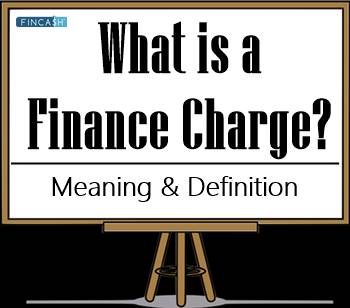What is a One-Time Charge?
A one-time charge refers to a charge on a company's earnings that is expected to be a single time occurrence and is unlikely to happen again. It can be a cash charge against earnings, including the cost of paying redundancy pay expenses to laid-off ex-employees.

Furthermore, it can also be a non-cash charge, like the revaluation of assets, including Real Estate, whose market value has declined due to variation in business economics or consumer demand.
Financial analysts frequently omit one-time costs when assessing a company's long-term earnings potential.
One-Time Costs and Recurring Costs
Some one-time charges don't repeat and have no bearing on a company's long-term success and growth. Thus, they could be excluded from financial statements or categorised as an unusual item. On the other hand, some businesses record charges that they frequently incur in the course of their normal business operations as one-time charges. This approach can make the company's financial health appear better than it is, and investors must be aware of it.
Many people believe that this is a dangerous tendency. A few of the businesses even use restructuring charges to boost their future earnings and profits. Firms reduce future depreciation and so enhance earnings by taking substantial restructuring charges. When profitability is expressed in terms of return, this is amplified because substantial restructuring charges diminish the book value of equity and capital. As a result, many analysts are sceptical about one-time charges, and the adjustments should include this in the financial statements.
If the one-time charges represent true operational expenses, they should be handled as such, and earnings should be calculated after them. If one-time costs are truly one-time charges, earnings should be calculated before they occur.
When it comes to calculating return on capital and equity, estimating the book value before extraordinary charges in the current quarter and in time can yield a more reliable assessment.
Talk to our investment specialist
How to Deal with One-time Charge Accounting?
A corporation can misuse a one-time charge in a variety of ways. However, various steps can be taken to reduce the distortion. The following are some of the measures:
- Before undertaking any analysis, such as forecasting and valuation, remove the impact of one-time charges from financial statements. It is significant because it depicts the financial situation more accurately and because one-time charges are tough to predict
- Because operating numbers exclude the one-time charges' effect, they should be used instead of bottom-line numbers. In the case of the P/E ratio, using operating income rather than net income for earnings-per-share will result in a more realistic value assessment
- Examine all financial statements altogether instead of individually. It can aid in the detection of the type of erroneous reporting
- Keep an eye out for companies that charge one-time fees regularly. They may not be one-time fees, but rather ongoing costs of conducting company. This type of behaviour is suggestive of inadequate management
- As much as possible, use GAAP/IFRS-compliant measurements and evaluate non-GAAP/IFRS metrics to their complying counterparts. Accounting standards change over time to maintain rigour and accuracy
One-Time Charge Examples
A company, for example, may be able to write off costs associated with reorganising its file server company as a one-time charge. Suppose the company also writes down inventory expenses every other quarter and presents these charges as one-time charges. In that case, the company's financial situation can be different than investors and analysts expect.
Conclusion
While financial analysts may be willing to overlook one-time costs when assessing a company's results, stock prices are not. In fact, during periods of repeated one-time charges, stock returns have declined dramatically.
As a result, understanding each one-time charge is critical for anyone examining a stock that has been exposed to one-time charges. For the investor or analyst, they are not all equal. Some charges reflect the company's sound financial judgments. Others may suggest that the company's finances are catching up with previous setbacks.
All efforts have been made to ensure the information provided here is accurate. However, no guarantees are made regarding correctness of data. Please verify with scheme information document before making any investment.











